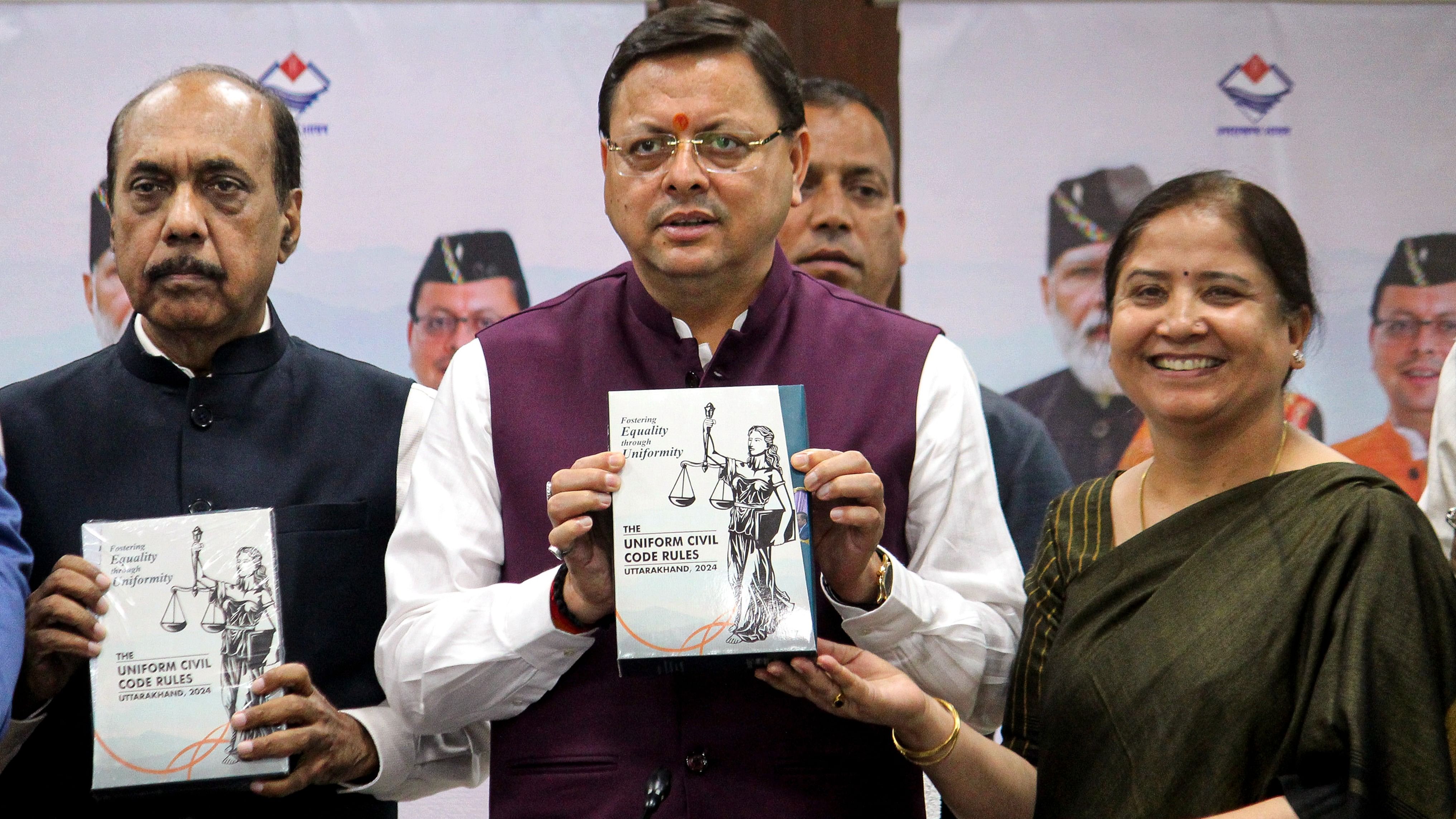
Uttarakhand Chief Minister Pushkar Singh Dhami receives the final draft of rules and regulations prepared by a committee constituted for the implementation of the Uniform Civil Code (UCC) in the state, in Dehradun, Friday.
Credit: PTI Photo
Dehradun: With the expert committee submitting the final draft of the rules and regulations governing the Uniform Civil Code (UCC) to Uttarakhand chief minister Pushkar Singh Dhami on Friday, the hill state is all set to become the first state in the country to implement the contentious law.
According to the official sources in the Uttarakhand capital of Dehradun, former state chief secretary Shatrughna Singh, who headed the nine member expert panel, handed over the final draft to Dhami.
The state government would soon be putting the final draft before the cabinet for its approval.
Sources said that the UCC could be implemented in Uttarakhand on November 9, which was the state’s foundation day. A hint to this effect was recently dropped by Dhami.
The UCC law contained the rules and regulations governing matters pertaining to marriage, divorce, inheritance, adoption and guardianship.
The UCC contained the same law for marriages, divorce, maintenance and inheritance. It would also make registration of the marriage mandatory and provide for a fine of Rs 25 thousand for failing to do so. Those failing to get their marriage registered would not be eligible to receive any benefits from the government.
It also provided for identical grounds to the husband and wife in cases of divorce and a ban on polygamy.
It also provided for maintenance for the parents of the wife by the husband in the event of her death and if there is no one else to take care of them and equal rights for Muslim women in cases of adoption.
The UCC provided for a ban on 'iddat' (the period a Muslim woman must observe after the death of her husband or after a divorce and in this period she can not marry another man) and 'halala' (when a man irrevocably divorces his wife and wants to marry her again. In that case the woman will have to marry another man, get divorce, observe the period of iddat and only then can she marry the first husband).
The UCC provides for equal rights for sons and daughters and also does not differentiate between legitimate and illegitimate children. Children through surrogacy or assisted reproductive technology would also be considered as biological children.
The draft report on the Uniform Civil Code (UCC), prepared by the expert panel, headed by Justice (retd) Ranjana Prakash Desai had been submitted to the state government in February this year.